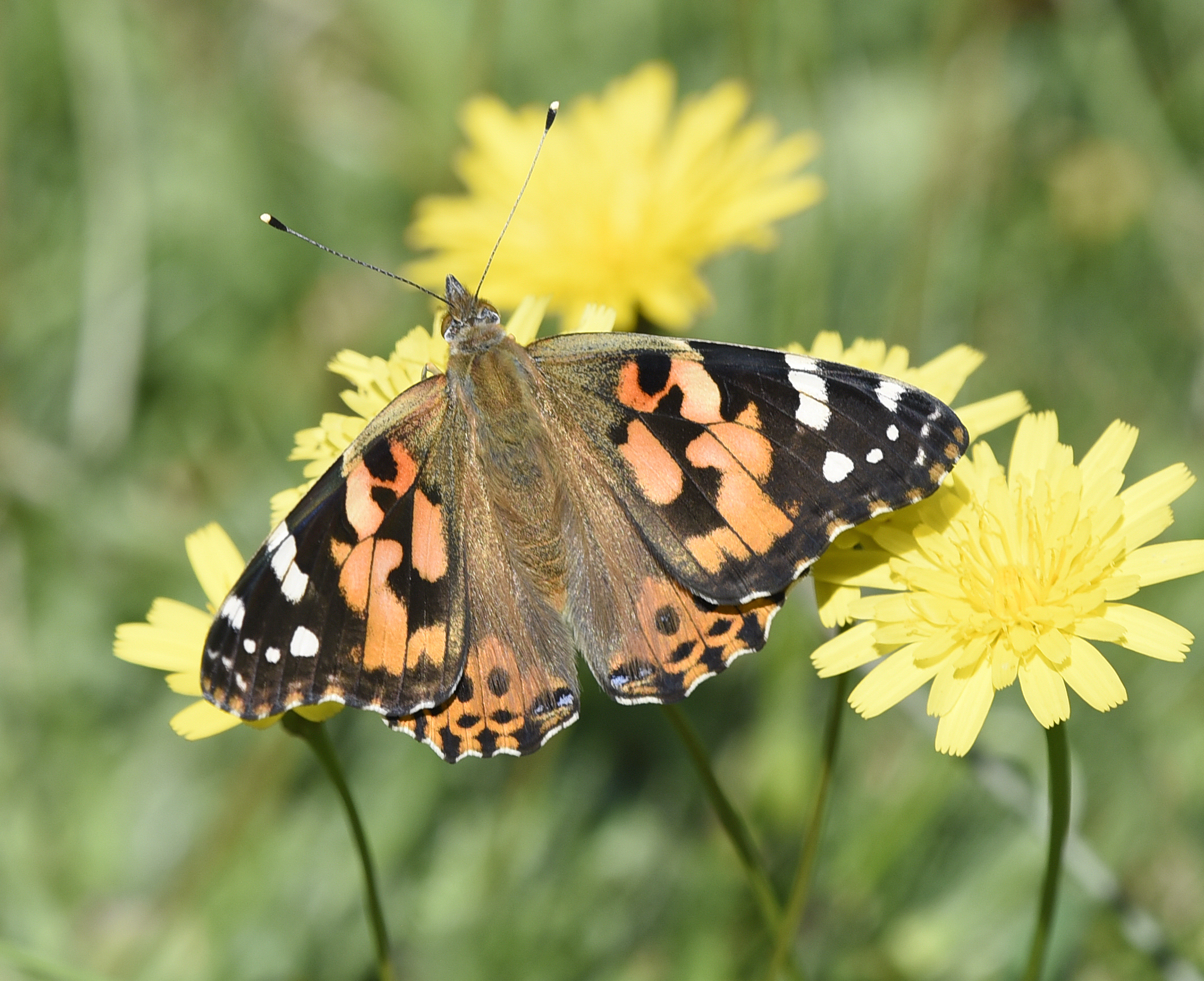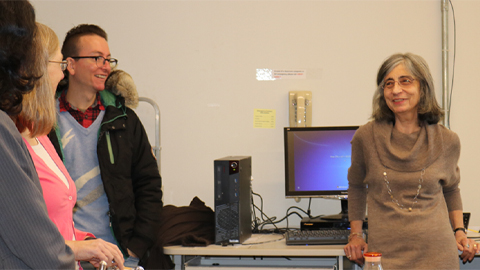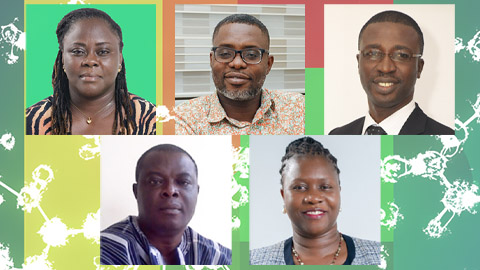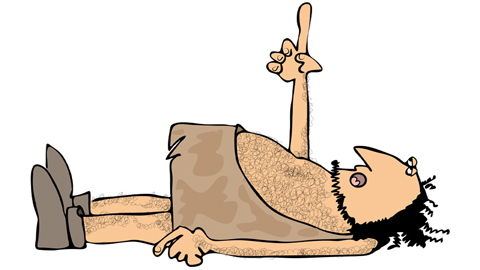This week’s staff picks
Every week, the ASBMB staff shares what we’ve been reading, listening to, watching and doing. As we all weather the COVID-19 pandemic and our new normal of social distancing, we look for ways to cope and connect — and a bit of entertainment to take our minds elsewhere.
Circular (TED Radio Hour, NPR)
I had no idea oysters were so important to the nitrogen cycle! Hooray for science. Also, I can’t decide if that segment makes me want to eat oysters all the time or never eat them again.
— Catherine Goodman, scientific editor at the Journal of Biological Chemistry
Caterpillar to Butterfly Kit: Painted Lady Butterflies (Nature Gift Store)

Not exactly a grown-up recommendation, but when most extracurricular activities were suspended, my 13-year-old was looking for ways to channel his teenage energy and started a painted lady (Vanessa cardui) butterfly farm. The store ships the caterpillars, the food, a habitat and all the necessary components to grow the butterflies indoors, and we release them into the environment when they’re ready (spring is the ideal time for this). We used to do this when my son was much younger, but now I’ve coupled the hands-on experience with a few developmental biology facts (he gets bored easily, so I try not to scare him off). We might try tadpoles and ladybugs next, but I said a firm NO to ants.
— Quira Zeidan, education and public outreach coordinator
Parasite (Bong Joon-Ho, available on Hulu)
My husband and I finally got around to watching "Parasite," Bong Joon-Ho's masterpiece that took home the Oscar for Best Picture and the Palme d'Or last year. It did not disappoint. If it's not too late, I highly recommend you watch the movie with as little prior knowledge about the plot as possible. All I'll tell you is that it's not about a parasite outbreak.
Parasite: Mastering the basics of cinema (Accented Cinema, YouTube)
"Parasite" is packed with visual metaphors. This video highlights some of the things you might not have noticed and explains what makes the movie so visually striking.
— Joanna Kotloski, marketing associate
Lemon blueberry coffeecake (Barbara Bakes)
This is really, really good. One of the best coffee cakes I’ve ever made.
— Laurie Reluzco, meeting planner
#PeepYourScience (The Open Notebook)
Though I usually like to blow Peeps up in the microwave, I enjoyed scrolling through the winners of The Open Notebook’s second-annual World’s Finest Science-Themed Peeps Diorama Contest. You can find plenty of Peep puns and fun re-creations of notable events, including Miss America’s elephant toothpaste science experiment.
— Stephanie Paxson, diversity and undergraduate education coordinator
Shakespeare’s Globe: Free Premieres (Globe Theatre, YouTube)
Thanks to my seventh-grade English teacher, Ms. Frazier, I learned to love Shakespeare. So when I saw a post on Instagram about the Globe offering free recordings of performances on their YouTube channel, I had to share. The first play available is “Hamlet.” To keep with my favorites from middle school, I’m really hoping they show “Romeo and Juliet” and “A Midsummer Night’s Dream.”
— Ally Frick, multimedia and social media content manager
Offshore (Penelope Fitzgerald, HarperCollins)
Living in an uncertain place between land and water could be a metaphor, especially now, but in this 1979 novel, it’s the literal setting — as well as the emotional condition — of a small community of barge dwellers who inhabit London’s Battersea Reach in the early 1960s. Fitzgerald is a wonderful writer, and this is a lovely book about people I’d like to know — especially six-year-old Tilda, whose boots are always muddy. As soon as I got to the last page, I started reading it again.
A sonnet a day keeps ennui at bay (Sir Patrick Stewart/William Shakespeare)
This one goes out to all my fellow Anglophiles: Legendary actor Sir Patrick Stewart has spent his time in isolation at home reading one Shakespeare sonnet a day. He posts videos of his dramatic readings, often accompanied by a short explanation about the poem, or an admission that he’s skipped one because he doesn’t care for its message or it’s just too difficult. Not only do I find these videos soothing and beautiful, but I’m learning a little more about Shakespearean literature too! You can find all of the videos on Stewart’s Twitter account, @SirPatStew, or under the hashtag #ASonnetADay.
— Laurel Oldach, science communicator
Enjoy reading ASBMB Today?
Become a member to receive the print edition monthly and the digital edition weekly.
Learn moreGet the latest from ASBMB Today
Enter your email address, and we’ll send you a weekly email with recent articles, interviews and more.
Latest in Opinions
Opinions highlights or most popular articles

Learning to listen
In her talk at DiscoverBMB, ASBMB Sustained Leadership Award recipient Adele Wolfson reflected on the increased inclusiveness of science in recent decades.

Getting to know scientists half a world away
In a program at Wellesley College, students interview and write about researchers at a university in Ghana.

Let’s make ASBMB awardees look more like BMB scientists
Think about nominating someone outside your immediate network.

A paleolithic peer review
You might think review panels have only been around for the last century or so. You would be mistaken.

Early COVID-19 research is riddled with poor methods and low-quality results
The pandemic worsened, but didn’t create, this problem for science.

So, you went to a conference. Now what?
Once you return to normal lab life, how can you make use of everything you learned?
